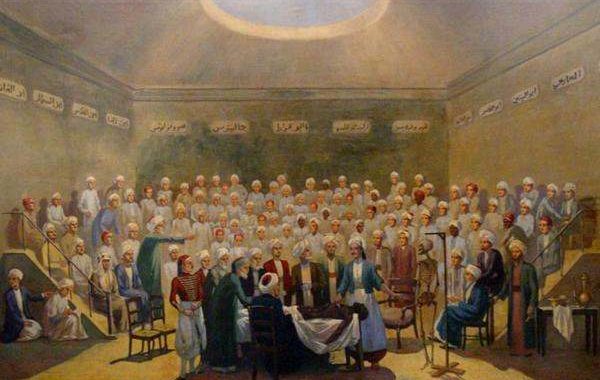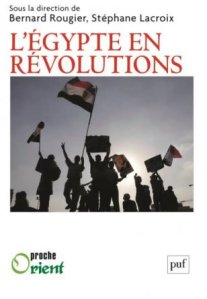
النسخة العربية متاحة أسفل
La version française est disponible plus bas
Call for papers – Egypte Monde Arabe (CEDEJ)
Everyday Alexandria
Social Sciences and Egypt’s 2nd Capital
Edited by Youssef El Chazli (UNIL/Paris 1/CEDEJ)
We have very little empirical data on contemporary Alexandria. In 2007, in an introduction to an edited volume on Egypt’s provincial cities (Denis, 2006), French geographer Eric Denis noted that “Egyptian provincial cities did not exist.” If, for him, Alexandria might’ve constituted an exception, he also remarked that if the city existed in the literature, it did as an “antique and cosmopolitan Mediterranean myth; rarely as the metropolis of 3 million inhabitants with its uncertain future, that it is above all.” Almost 10 years later, this remark seems to be still valid. It is striking to see that still today, except an old article from the same author (Denis, 1997), there are few empirically based social sciences studies tackling Egypt’s “2nd capital.” (for a brief literature review, cf. El Chazli, 2015)
Nevertheless, it is worth noting that, despite the lack of empirically based studies, Alexandria continues to draw the attention of observers (from the media or the arts and culture worlds). We could even consider that there has been revival of Alexandrian themes since 2011 and the framing of Alexandria as a “revolutionary city.” (Ali, 2012, 2013) Yet, despite this interest, it is still the political or journalistic commentary that dominates writings on the city, with a particular focus on such tropes as its “romantic,” “poetic,” and “mythical” aspects, that of a city prisoner of its past.
This problem isn’t new in any way. Indeed, as Egyptian historian Khaled Fahmy has pointed out, concerning the modern historiography of Alexandria, the dominance of certain themes like cosmopolitanism has contributed to the obfuscation of the manner in which the majority of the Alexandrian population lived their everyday lives. Fahmy thus considered that “any historical account of a city that does not give pride of place to the majority of its inhabitants must be incomplete in some basic and essential way.” This is why he calls upon researchers to engage in a social history of the city, which would take into consideration the diversity of the lived experiences of its inhabitants.
In the rare occasions where Alexandria has been studied in contemporary works, the city has revealed itself as an excellent case studies of broader economic, political, and social dynamics found in all of Egypt; examples such as the chapter on Alexandria in Samer Soliman’s book on the political economy of the Egyptian regime (2011), Samuli Schielke’s recent ethnography (2015), or Ahmed Zaghloul Shalata’s monograph on Alexandrian Salafism, all show us how useful a concentration on the 2nd capital might be.
The aim of this issue of Egypte Monde Arabe is to gather for the first time and in a single volume empirically-based studies on a diversity of objects all problematized in relation to Alexandria. Contributions in Arabic, English, or French can be inscribed in different (sub-)disciplines of social sciences on the condition that it should be based, at least partially, on original empirical material. This issue thus aims to contribute to our understanding of cultural, economic, political, and social dynamics of contemporary Egypt while accumulating a precise and renewed empirical knowledge of the Alexandrian metropolis.
Abstracts/proposals of no more than 1 page should be sent, along with a proposed title and a biographical note (affiliation, contact details, etc.) to Youssef.elchazli@unil.ch
Deadline for abstract submissions: January 1st, 2017
Notification of selected authors: February 1st, 2017
Deadline for submission of complete articles: July 1st, 2017
Peer-review and revisions: August-September 2017
Publication: December 2017
دعوة لتقديم أوراق بحثية
الإسكندرية اليومية. العلوم الاجتماعية والعاصمة الثانية
إعداد يوسف الشاذلي (جامعة لوزان وجامعة باريس السوربون)
لاتزال الأبحاث العلمية المعنية بدراسة الإسكندرية المعاصرة قليلة للغاية. في العام ٢٠٠٧ ، رأى باحث الجغرافيا “أيريك دونيس” في مقدمة كتابه عن المدن المصرية ، أن ” في مصر لا يوجد مدن محافظات ” بمعنى أن تمركز الدولة في العاصمة وتمحورها حولها ، قتل أية إمكانية لتتطور وازدهار المدن الثانوية . لكن أضاف “دونيس” أنه من الممكن القول بأن الإسكندرية استثناءٌ لهذه القاعدة ، فالإسكندرية موجودة بالفعل كمدينة هامة ، ولكنها تُرسم عادةً في المخيلة “كأسطورة متوسطية وكوزموبوليتية، وليس كمدينة الثلاث ملايين نسمة ذي المستقبل المبهم”. و نعتقد أن هذا التقييم ما زال قائماً حتى اليوم. و المثير للدهشة ملاحظة قلة المنتجات البحثية في مجال العلوم الاجتماعية، المبنية على معلومات امبيريقية وأبحاث ميدانية، حول عاصمة مصر الثانية (لملخص، انظر الشاذلي، ٢٠١٥).
لكن، على صعيد آخر، يذكر أنه في السنوات الأخيرة تزايد الاهتمام بمدينة الإسكندرية في مجالات الثقافة والفنون. بالإضافة إلى أنه أصبح للعاصمة الثانية سمعة خاصة في أعقاب ثورة ٢٥ يناير كمدينة “ثورية” (أنظر عمرو على ٢٠١٢، ٢٠١٣). ولكن، على الرغم من تلك التغيرات، مازال ما يُكتب عن المدينة محصوراً في التعليقات السياسية ومقالات الرأي، والاهتمام المفرط في الرومانسية و السردية الأسطورية ، لمدينة طالما تكون محاصرة في ماضيها (إما للبكاء على أطلال هذا الماضي أو للهروب والتنصل منه). هذا وعلى الرغم من أن في المرات القليلة التي انتزعت فيها العلوم الاجتماعية الحالة السكندرية، وتعاملت معها كموضوع جاد للبحث والنقد، أفرزت دراسات هامة ومفيدة ، تركزت على السياق العام لعملية التغيير التي مرت بها مصر سياسياً، اقتصادياً، اجتماعياً، وثقافياً.
فعلى سبيل المثال، يجدر بنا الإشارة هنا، إلى دراسة صامولي شيلكه عن هموم الشباب في كتابه الأخير (شيلكه، ٢٠١٥)، أو الفصل الذي خصصه الراحل سامر سليمان لاقتصاديات الإسكندرية في كتابه عن الاقتصاد السياسي للدولة المصرية (سليمان ٢٠٠٥، ٢٠١١)، أو، أخيراً وليس آخراً، دراسة ” الدعوة السلفية السكندرية ” للباحث أحمد زغلول شلاطة (٢٠١٦).
وفي الحقيقة ، فتلك الإشكالية ليست بجديدة فيما يخص المنتجات العلمية عن الإسكندرية. يرى المؤرخ المصري الدكتور خالد فهمي (٢٠٠٤أ، ٢٠٠٤ب)، في تعليقه على الأعمال التاريخية عن المدينة، أن هيمنة بعض المواضيع ، كالكوزموبوليتية، ساعد في طمس تاريخ غالبية سكان المدينة وحياتهم اليومية من السردية المسيطرة للقرن التاسع عشر وبداية القرن العشرين. ومن هذا المنطلق، ينوه فهمي أن “أي سرد تاريخي للمدينة لا يأخذ بعين الاعتبار أغلبية سكانها هو بالتأكيد غير مكتمل”. وعليه فأن الشروع في أي دراسة للتاريخ الاجتماعي للمدينة، يجب وأن تأخذ في عين الاعتبار تنوع التجارب المُعاشة لسكان المدينة.
لذلك نرى، تأكيدًا على ما جاء به خالد فهمي، أنه قد حان الوقت “تطبيع” دراسة الإسكندرية كموضوع بحثي، أي الشروع في دراسة الحاضر الاجتماعي للمدينة وحياتها اليومية والابتعاد من المواضيع المعتادة…
هدف هذا العدد الخاص من دورية مصر/العالم العربي العلمية، التي تنشرها السيداج منذ عام ١٩٩٠، أنه للمرة الأولى يتم جم، دراسات قائمة على أبحاث ميدانية وامبيريقية، عن مواضيع مختلفة، تكون الاسكندرية مسرحاً يربط بينهم.
يمكن للمشاركات أن تكون بالفرنسية، الإنجليزية أو العربية، ويمكن أن تندرج تحت تخصصات وفروع علمية متعددة، من التاريخ للجغرافيا، مروراً بعلم الاجتماع والانثروبولوجيا وغيرهم. لكن الشرط الأساسي هو أن تكون الدراسة مبنية على مادة امبيريقية ومعلومات تم رصدها وجمعها بطريقة مباشرة (اثنوغرافيا، مقابلات، أرشيف، إلخ …) يهدف هذا العدد إلى المساهمة في فهم الحالة المصرية المعاصرة، تداعياتها الاقتصادية والسياسية والاجتماعية والثقافية، وكذلك جمع مادة علمية جديدة ودقيقة عن العاصمة الثانية.
على المهتمين ارسال مقترح ورقة (لا يزيد عن صفحة)، يستعرض الأفكار الأساسية للدراسة ونوع المادة العلمية المبني عليها البحث، وكذلك سيرة ذاتية مبسطة (بضع سطور)، على البريد الالكتروني
youssef.elchazli@unil.ch
آخر ميعاد لإرسال المقترحات: ١ يناير ٢٠١٧
ميعاد إرسال النسخة الأولى من الورقات: ١ يوليو ٢٠١٧
نشر العدد الخاص من الدورية: ديسمبر ٢٠١٧
Alexandrie au quotidien
Les sciences sociales face à la « deuxième capitale » d’Egypte
Dirigé par Youssef El Chazli (UNIL/Paris 1/CEDEJ)
Nous avons très peu d’éléments empiriques sur l’Alexandrie contemporaine. En 2007, dans l’introduction à un ouvrage collectif sur les villes des provinces égyptiennes (E. Denis 2007), le géographe Eric Denis remarquait que « les villes de province égyptiennes n’existent pas ». Si, pour lui, Alexandrie pourrait éventuellement constituer une exception, il rappelait ainsi que la ville existait, certes, mais plutôt « comme un mythe méditerranéen antique et cosmopolitain ; rarement comme la métropole aux trois millions d’habitants et au devenir économique incertain qu’elle est pourtant avant tout ». Le constat est toujours d’actualité. Il est frappant de constater qu’encore aujourd’hui, hormis un texte déjà ancien du même auteur (É. Denis 1997), il existe très peu de travaux en sciences sociales traitant de la « deuxième capitale » d’Egypte, à partir de données empiriques, alors même que nombre d’auteur-e-s se sont intéressé-e-s depuis à des villes de province aux poids économique, culturel et politique bien moindre qu’Alexandrie (pour un état de la littérature El Chazli 2015).
Cependant, il n’est pas inutile de rappeler, qu’à défaut d’études empiriques, Alexandrie continue d’attirer l’attention des observateurs (médiatiques ou artistiques). On pourrait même y voir un renouveau, depuis la Révolution de 2011, et l’image construite d’Alexandrie comme « ville révolutionnaire » (Ali 2012, 2013). Mais, malgré cet intérêt, c’est le commentaire politique et journalistique qui domine pour l’instant les productions sur la ville, avec une focalisation particulière sur l’aspect « romantique » et « mythique » d’une ville enfermée dans son passé. Pourtant, dans les rares cas où la ville est étudiée, elle s’avère être un excellent analyseur des dynamiques économiques, politiques et sociales à l’œuvre dans le reste du pays ; que l’on pense au chapitre que Samer Soliman consacrait à Alexandrie dans l’ouvrage issu de sa thèse (Soliman 2011) ou bien l’ethnographie récente de Samuli Schielke (2015).
Le problème n’est d’ailleurs nullement nouveau. Ainsi, l’historien égyptien Khaled Fahmy (2004a, 2004b) note, à propos de l’historiographie moderne d’Alexandrie, comment la prégnance de certains thèmes, comme celui du cosmopolitisme, ont contribué à occulter la manière dont la majorité de la population alexandrine pouvait vivre au quotidien. L’historien considère ainsi que « tout compte rendu historique de la ville qui ne prenne en compte la majorité de ses habitants doit être, fondamentalement, incomplet ». Il propose donc de poser les jalons pour une « histoire sociale » de la ville, prenant en compte la diversité des expériences et des vécus des habitants de la ville. Le moment semble être venu de « banaliser » Alexandrie comme objet d’étude.
L’objectif de ce numéro d’Egypte/Monde arabe est donc de rassembler pour la première fois des études empiriquement fondées portant sur des objets divers mais problématisés à partir de la ville d’Alexandrie. Les contributions, en anglais, en arabe ou en français, pourront s’inscrire dans différentes (sous-)disciplines des sciences sociales, à condition de se fonder, au moins partiellement, sur un matériau empirique original. Ce numéro vise ainsi à contribuer à notre compréhension des dynamiques culturelles, économiques, politiques et sociales de l’Egypte contemporaine tout en accumulant un savoir empirique précis et novateur sur la métropole alexandrine.
Les abstracts/propositions, d’une page maximum, ainsi qu’un titre provisoire et une notice biographique, sont à envoyer à youssef.elchazli@unil.ch
Deadline pour l’envoi des propositions d’article : 1er janvier 2017
Notification des propositions retenues : 1er février 2017
Deadline pour l’envoi d’article : 1er juillet 2017
Evaluations et révisions : août-septembre 2017
Publication : décembre 2017








